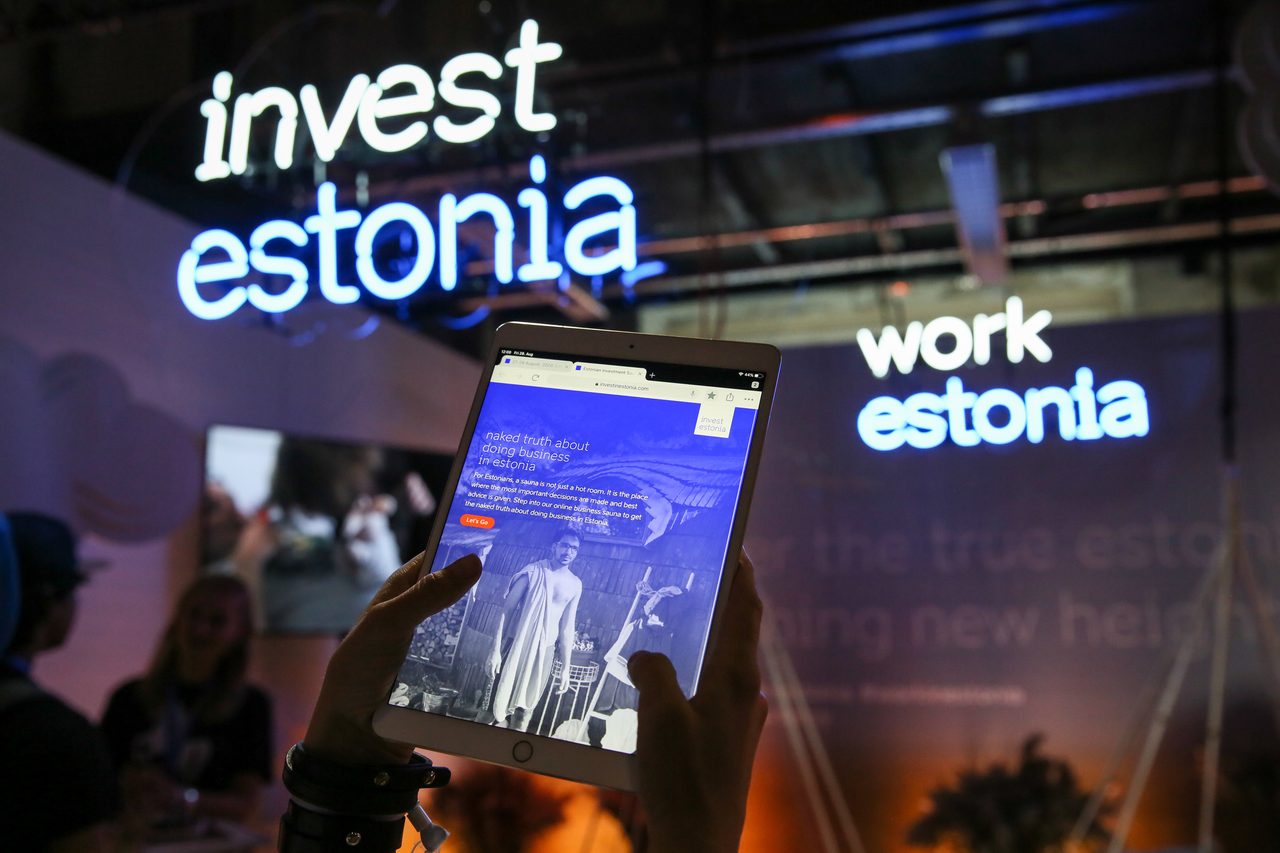Estonia’s super-simple tax system gives growing companies an edge
Businesses and investors looking to get away from red tape and confusing tax systems are turning to Estonia.

Estonia’s super-simple tax system gives growing companies
an edge
Businesses and investors looking to get away from red tape and confusing tax systems are turning to Estonia.

When deciding where to open an international office, German media software business Axinom had plenty of options on the table, from India to Slovenia. But it was the tiny country of Estonia that ticked all the boxes.
Estonia had everything Axinom needed: a wealth of tech talent, a government keen to welcome foreign companies, and a local business culture that matched up nicely to what Axinom was used to in Germany. The fact that it has one of the world’s most competitive tax systems, where businesses pay 0% income tax on all reinvested and retained profits, did not hurt either.
“We were not looking for a tax paradise, or a country where we could save some money, or anything like that,” says Oleg Knut, managing director of Axinom Estonia. “But the fact we can invest without being taxed like in Germany is a huge benefit to the company.”
Axinom is far from being the only company that has come to this conclusion. Since 2014, the year Estonia established its e-Residency programme, foreigners have set up almost 20,000 businesses in the country. Large corporations, such as Microsoft, Swedish telecoms business Ericsson and multinational gas firm Linde, have also opened Estonian outposts.
“In Estonia, they really want to motivate start-ups and existing companies to invest,”
Oleg Knut, managing director, Axinom Estonia

Caption ipsum dolor sit amet, consectetur adipiscing ut labore et dolore magna aliqua. Credit: Name
Brexit has provided a boost, too: since the UK’s referendum on EU membership in 2016, some 4,000 UK companies have set up in Estonia.
As Estonia’s business community has grown, so too has its GDP – rising from €6.2bn in 2000 to an estimated €26.8bn in 2021 – and its attractiveness to investors. Between 2015 and 2021, venture capitalists invested €2.62bn in Estonia-based start-ups; the highest figure in the CEE region. Already, 2022 is off to a phenomenal start, with more than €820m invested in Estonian start-ups in January.
Investing in e-Estonia
In 2004 Axinom opened an office with a single employee in Tartu, Estonia’s second city. It has since gone on to open another, this time in the capital city of Tallinn, and to hire more than 100 employees in the country – the majority of its entire workforce.
Because companies are not taxed on the money they earn, but on the profits that are paid out as dividends, reinvesting in the country is a no-brainer for businesses. “You could consider that in every investment into every company made, the government is also in with 20%,” the country’s former president, Kersti Kaljulaid, told CBS News. “We will wait [to see] whether you succeed.”
Only once a business has grown to the point of generating stable profits and paying out dividends, will it be taxed.
“In Estonia, they really want to motivate start-ups and existing companies to invest,” Mr Knut says, citing the number of “unicorns” (privately held start-ups valued at over $1bn) the country is home to as proof of this. Estonia has nine so far, including household names such as Skype, Wise (formerly TransferWise) and Bolt.
The rules are simple and fair, and so there is no excuse for getting it wrong and no reason to hold back on growing your business.
The understanding that businesses come to the country in order to grow is clear – Estonia is, after all, something of a start-up itself. Having regained independence in 1991, the same year that the world wide web became publicly available, today 99% of government services are online, including procedures for setting up a business and filing taxes.
Paying taxes in Germany, for example, is a complicated process that can take several weeks and normally requires the input of a tax adviser. On average, companies in OECD countries are estimated to spend 44 hours per year figuring out what they owe in taxes.
The rules are simple and fair, and so there is no excuse for getting it wrong and no reason to hold back on growing your business.
By contrast, 95% of taxes are filed online in Estonia, and the process can take as little as three minutes. The rules are simple for individual entrepreneurs and investors based in Estonia, too: individual income is taxed at a flat 20% rate.

Caption ipsum dolor sit amet, consectetur adipiscing ut labore et dolore magna aliqua. Credit: Name
Flat tax, hockey stick growth
A country with minimal taxes (and minimal headaches while sorting those taxes) sounds like a Utopia for entrepreneurs, corporates and investors alike. But how does this system benefit Estonia’s government and its people?
“We actually gather more corporate tax than the US, for example, per capita,” the country’s prime minister, Kaja Kallas, points out. In the nine months to September 2021, Estonia’s tax revenues rose by 60% year on year, generating an additional €51m. “The system brings in more tax because nobody hides their income – there’s no reason to, as it’s not taxed if you invest it back into the company.”
Ms Kallas emphasises that this is one of the main principles underpinning Estonia’s taxation philosophy. The rules are simple and fair, and so there is no excuse for getting it wrong and no reason to hold back on growing your business.
Produced by E.I. Studios, the custom division of Economist Impact


